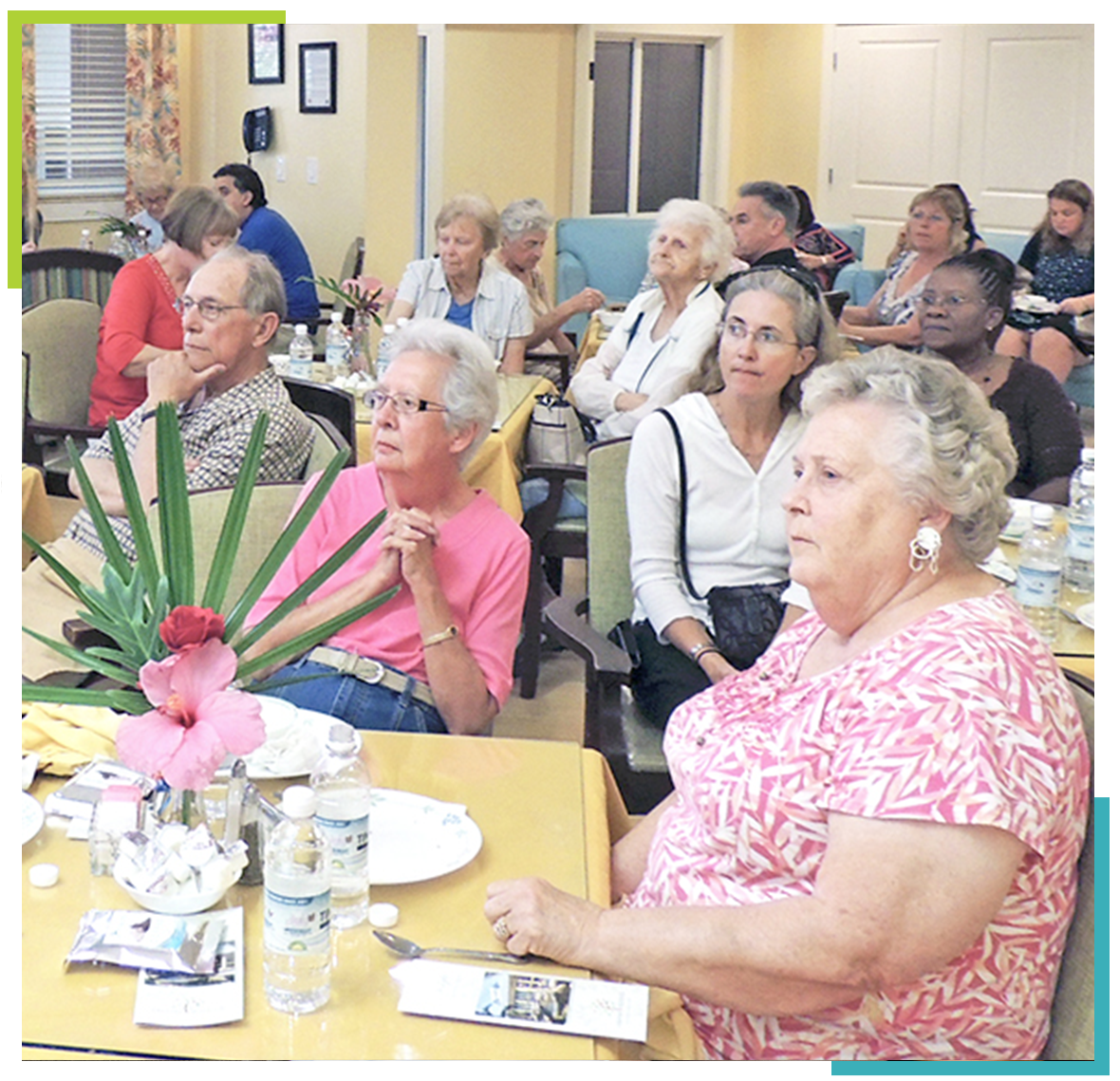Against the backdrop of a long life with loved ones, dementia and Alzheimer’s is especially cruel. Losing the ability to remember names and faces is scary, but losing precious memories is devastating for patients and their caregivers. While there is no cure for Alzheimer’s, some forms of dementia can be slowed or even reversed in some cases. If your loved one has dementia and is facing memory loss, there are some steps you can take to help them preserve their memory as much as possible. Personalized and targeted memory care services can make all the difference.

Any activity that engages the brain can be helpful – these activities may include speech therapy, art activities, games involving memory, worship services, musical concerts, or pet therapy. While essential to keep the brain engaged, sometimes keeping a schedule with memory care patients can be challenging.
Several everyday activities like making the bed, cleaning up their apartment, and taking care of plants can help memory care patients preserve their cognitive function. These ordinary activities can inspire assisted living or memory care residents who might not be ready to socialize with others to remain involved in daily life.
Most memory care professionals agree that several basic guidelines drive the development of all memory care services.
- Embrace Ease and Simplicity: It is always prudent to simplify a memory care patient’s daily schedule and routine. Embracing simplicity doesn’t excuse them from performing necessary tasks. Instead, it refers to thoughtfully eliminating those unnecessary tasks that cause stress and focusing on the activities that build confidence, connections, and engaging interactions.
- Socialize with Other Residents: Engagement and social interaction can happen even if your loved one doesn’t choose to participate in planned activities. A simple, casual conversation can help stimulate the brain in patients with cognitive impairment. Therefore if your loved one won’t join in at the ice cream social, take a walk with them around the facility and start conversations.
- Conduct Research: A patient’s history becomes relevant when working with assisted living or memory care administrators to determine the best course of action. This means learning more about their medical history and researching their personality, likes and dislikes, and favorite pastimes before the onset of dementia. Talking to as many friends and family members as possible can be invaluable when developing the right memory care services for the situation.
- Involve Peer (Friend) Mentors: Most residents in memory care centers are currently in one of the seven stages of dementia – and they will move to other stages over time. When deciding on an appropriate group activity for a dementia patient, caregivers should look for some friends and peers in various stages of the disease. However, because those with dementia can be a bit unpredictable, choose friends with compatible personalities or those not known to stir up drama or trouble (bouts of anger, for instance). Putting people with different abilities and capacities enhances engagement and allows everyone involved to feel empowered.
- Think Out of the Box: Pet and music therapy effectively encourage people to open up and communicate with one another. Dementia and memory care services focusing on engaging and interactive activities are especially useful for seniors who rarely smile, talk or interact with other residents.
Professional memory care requires creative thinking, as each person is unique – and each needs personalized strategies to keep them secure, safe and happy.
A Banyan Residence is a memory care and assisted living facility located in The Villages. We welcome your visit for a tour and to learn more about our services. Call us today.







